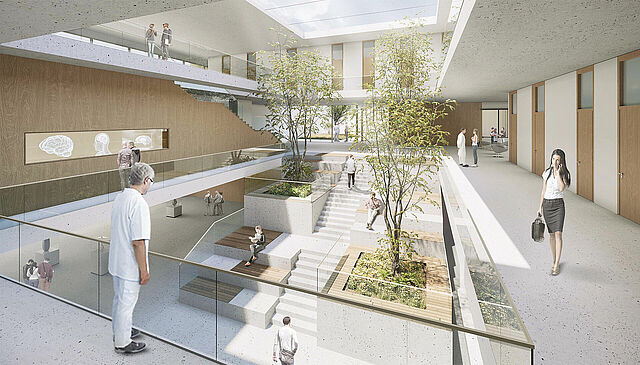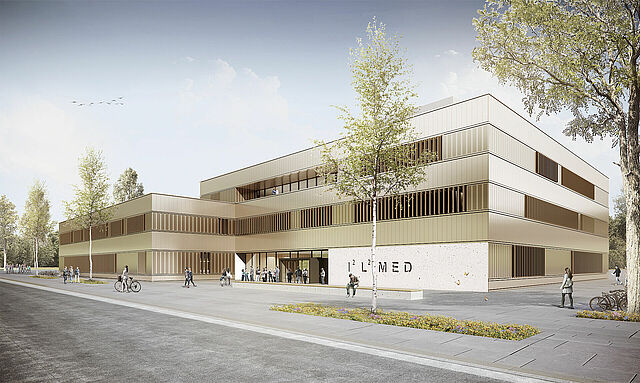P.A.L.M.E. - Place for Exchange, Learning, Medicine and Development
Expected to Open in 2024
The Düsseldorf Curriculum Medicine - one of the most innovative medical model study programs in Germany - is an expression of the path we have consistently taken towards a forward-looking medical education. Aligned with the important medical competencies, it imparts knowledge in an interdisciplinary manner, based on the learning outcome, and theory and practice go hand in hand from the first semester.
As a place of exchange, study and development, our O.A.S.E. is the "home" of our medical students. It stands as a symbol for our mission statement, for a "lived community of students, teachers and staff".
From the Laboratory Bench to the Hospital Bed – A Centerpiece of Modern Medical Education
In the immediate vicinity of the O.A.S.E., a centerpiece of teaching is currently being built: Under the name "P.A.L.M.E. - Place for Exchange, Learning, Medicine and Development", the new building will bring together theoretical medicine and clinical practice, digital teaching, learning and testing, as well as interdisciplinary collaboration on a completely new level. The innovative and interdisciplinary teaching and learning center thus embodies an elementary component of our model degree program and our mission statement. It will make a significant contribution to the continuous quality improvement of studying and teaching in Düsseldorf.
Students and teachers will have more than 6,500 square meters of usable space at their disposal, where they can develop in lively interaction and mutual appreciation. In addition to lecture halls, seminar rooms and open meeting areas, three centers will be housed in the building and closely linked to each other:
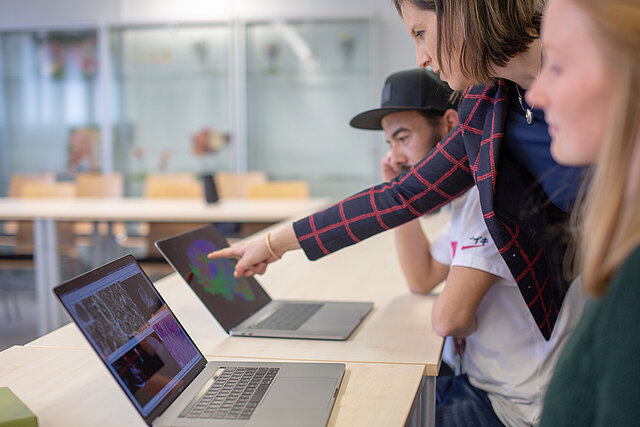
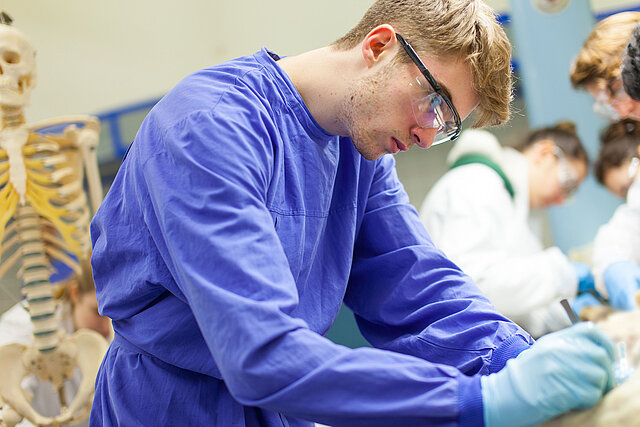
The teaching of anatomy provides the foundation for understanding the human body. Through the dissection of body donations from the first semester, students experience anatomical, three-dimensional structures in real terms and thus understand their function and the complex interaction of organs, bones, muscles, tendons and ligaments. This is the prerequisite for being able to work on patients later on - be it during physical examinations or during operations.
The Center for Macroscopic and Clinical Anatomy will provide excellent conditions for modern training and continuing education in these important fundamentals. It will be possible to teach 490 students at the same time. A paternoster system in which the prepared body donations are stored will ensure the highest process and work safety behind the scenes. A building-wide high-end ventilation system ensures a low
ensures a low-emission working environment for students, faculty and staff that meets the highest standards.
In the Anatomical Theater, dissections and techniques on body donations will be able to be demonstrated in a stadium-like setting. Additional special workstations, each equipped as in a modern operating room (X-ray capable), allow the training and development of future (e.g. minimally invasive) surgical techniques in education, but especially in the continuing education of our physicians.
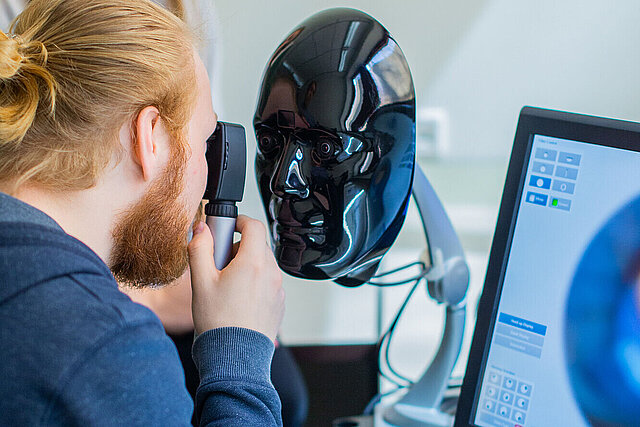
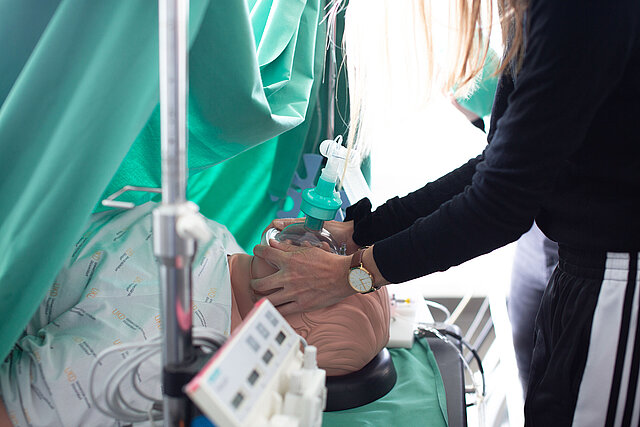
Practice makes perfect. And routine creates confidence in dealing with (future) patients. We therefore focus on patient-related, practical training from the first semester onwards, which goes hand in hand with the basic subjects. The knowledge imparted in anatomy, among other things, is transferred to the teaching of concrete physical examination techniques in the training center for medical core competencies.
The training center and the simulation center already existing at the UKD will be combined in the teaching and learning center in order to cover the entire spectrum in the training of medical core competencies, such as communication with the patient, anamnesis and physical examination, and to take it a few steps further: The training and simulation of complex medical scenarios, which are not always feasible with real patients, will be possible here on simulation mannequins, among other things! Starting with the simulation of a birth, through interdisciplinary cooperation in emergencies in a 360° simulation, the mapping of real processes in the operating room, to team training in a fully equipped Intensive Care Unit (ICU).

Digitization is an indispensable part of our everyday lives and of medicine, and it will increasingly and rapidly lead to changing demands on processes and the medical profession.
on processes and the medical profession. The "Medical Studies 2020" master plan therefore also attributes a prominent role to digitization for future medical studies in Germany. We, too, are convinced that medical training at a high level must respond to these changes, and is also the best way to help shape them!
In addition, the opportunities of digitalization (cost savings, process optimization, acceleration) should also be reflected in teaching and studies. The prerequisites for this are being created in the Teaching and Learning Center for Medicine. Including 240 workstations in the area of digital microscopy, the center will offer 550 mobile workstations, making it possible for the first time for an entire cohort to take a digital exam at the same time. The entire building will have the technical prerequisites for the development and realization of novel digital teaching, learning and examination scenarios.
Many internationally renowned architectural firms participated in the Europe-wide realization competition. Nineteen remarkable designs were submitted. The jury finally decided unanimously in favor of the design by Atelier 30 from Kassel.
- Katharina Solbach
- room management
- +49 211 81-06890
- Building: 17.11
- Floor/Room: 01.24



